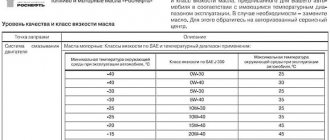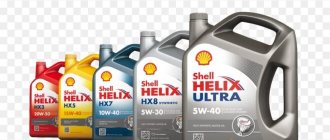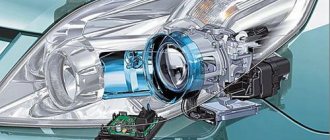Even relatively recently, when the first turbo engines appeared, buyers were reluctant to buy such cars. Everyone was afraid of the fragility and unreliability of supercharging systems.
Now, almost every car model in available trim levels is offered with at least one turbocharged engine. But atmospheric internal combustion engines are gradually losing their positions. Thanks to the turbine, it is possible to extract more power with a smaller volume, provide the car with better acceleration dynamics and at the same time achieve good fuel consumption figures.
But if the motorist has a turbocharged engine at his disposal, then additional responsibility arises in matters of maintenance. In addition to checking the performance of the turbine itself, you need to fill the engine with suitable oil. And not all lubricants intended for internal combustion engines can be used specifically on turbo engines.
To make the choice easier, an appropriate rating was compiled. Plus several useful recommendations, as well as background information that every motorist who plans to independently service a car or at least change the engine oil should know.
Types of motor oils
All oils are divided according to different criteria. First of all, this is the type of production:
- Mineral is produced from petroleum. Ideal for quiet everyday driving at medium speed, for example in the city.
- Semi-synthetic is obtained by mixing synthetics and natural bases. It is much more resistant to oxidation and does not lose properties at high and low temperatures. Suitable for high speed driving.
- Synthetic is produced entirely through chemical reactions, without the use of petroleum. High-quality additives are added to it, so it has excellent properties, but is also the most expensive. The properties are significantly superior to mineral and semi-synthetic options.
But there are still various parameters that must be taken into account when purchasing. First of all, this is viscosity, the possibility of use in winter. So, if the marking contains the letter W, then this oil can be used in winter (from the English Winter - “winter”). Then comes a number that indicates the maximum temperature, but not directly, but on a scale from 0 to 25 - the lower the number, the more frost the lubricant can withstand.
For example, if the label says W20, then this oil can be used in winter at temperatures down to -10 degrees. And W5 does not lose its properties down to -50 degrees. This applies more to synthetics and semi-synthetics, since mineral water quickly thickens and loses its properties at low temperatures.
Summer types simply do not have the letter W in the marking, and the number can range from 20 to 60 - it indicates the maximum temperature when the viscosity does not deteriorate.
There are also all-season oils that maintain viscosity over a wide temperature range. They have mixed markings, for example, 10W-50. The first part refers to the winter part, and the second number to the summer part.
The marking may also contain the letters S and C. S indicates that the product is intended for a gasoline engine, and C for a diesel engine. Further on there may be other letters in the alphabet - the further it is from the beginning, the better the characteristics. Thus, the designation SA means oil for a gasoline engine with the worst properties, literally outdated. SB will be better, and SC will be even better, up to SL, the best and most modern.
There are also universal oils, which are designated, for example, as CD/SE - they are suitable for both gasoline and diesel engines. In each case they exhibit different properties and are therefore designated by different letters.
Japanese IDEMITSU Zepro Touring 5W–30
Fully synthetic product manufactured by Idemitsu Kosan Co. Designed for use in four-stroke gasoline engines of passenger cars. Included in the list of recommended consumables for all Japanese cars, as well as some European and American cars. Produced using the manufacturer's original technology.
A set of additives reduces friction and engine temperature. The manufacturer guarantees safe engine start in winter at temperatures down to minus 25 degrees C and the formation of a lubricating film in summer up to +30 degrees C. There is a high degree of removal of contaminants and good anti-corrosion effect.
Engine oil viscosity
The question of what kind of oil should be poured if it is a turbocharged engine can largely be answered based on viscosity. This is also an important parameter when selecting a lubricant.
Viscosity is the main parameter of any motor oil and it depends on temperature. Moreover, the packaging indicates the permissible air temperature when the lubricant can be used, but in the engine itself it will be much higher. Even the instruments only show the temperature of the coolant, and not the real one to which the engine parts heat up. If the instruments show 90 degrees, then the temperature of the lubricant in the engine can be 150 degrees or more. A turbocharged engine can run much hotter than a regular engine.
Viscosity of various oils at a temperature of -20 degrees
The problem is that when the oil is heated, it becomes thinner, and if its viscosity is too low, its lubricating properties become insufficient. On the other hand, if this parameter is too high, then at low temperatures the oil may become too thick and useless. Engine wear in both cases increases greatly.
What kind of oil can and should be poured into a turbocharged and gasoline car engine? First of all, the one recommended by the manufacturer and written in the instructions. If this is not the case, then it should be of the same type as indicated, and the viscosity should also be selected similar. This parameter is not clearly marked on the label, but in the form of a temperature range, as discussed above.
How long does it take to change the engine oil on a new car?
Many people ask, after how many km do you need to change the engine oil for the first time?
As a rule, car manufacturers write in the service book when it is necessary to change the oil for the first time. The engines of modern cars undergo a so-called cold run-in already at the factory, and chips and other products are washed out of the engine using break-in oil.
Melekhov Alexey Viktorovich
Auto electrician, 9 years of experience
I recommend changing the oil of a new car after 2-3 thousand km. This is when maximum wear of parts occurs, and it is better to wash wear products out of the engine as quickly as possible. Long oil change intervals are marketing ploys.
The main thing is to undergo the first maintenance at an authorized dealer so as not to void the warranty.
Recommendations for choosing and using engine oil
There are many factors that influence choosing the best and most suitable oil for turbocharged gasoline engines. Of course, it is best to buy what is recommended by the manufacturer, because in tests it showed the best results. But you can also find an analogue that matches the characteristics.
The recommendations will be the following:
- You need to choose only a quality product. This will ensure a long life for the engine. Saving on lubrication will result in a completely destroyed engine and expensive repairs.
- Buy products only from well-known manufacturers, and those that have proven themselves well. There should be no purchases of goods from an unknown manufacturer, in incomprehensible containers with strange labels.
- Buy only in reliable specialized stores, where the likelihood of encountering a fake is less.
- Pay attention to the climate. If frosts do not fall below -15 degrees, semi-synthetics can be used, although they are inferior to synthetics. In summer, you also need to take into account the decrease in viscosity due to higher temperatures and it is worth using a thicker lubricant.
- It is better to buy oil constantly from one manufacturer, only changing its viscosity depending on the season. If you use analogues from several manufacturers, the service life of the engine and turbine will decrease - different additives and different quality will do their job.
- As an engine ages, it requires more viscous oil. Recommendations on acceptable characteristics are in the instructions, they must be followed.
- When changing the oil, it is recommended to flush the engine with special fluids, but in practice this should be done only after 3-4 changes. Or when changing the type or brand of oil.
- Diesel oil is completely unsuitable for a gasoline engine, as it is designed for other operating modes.
This is really important to remember. Filling a gasoline engine with diesel oil, even if it has the best characteristics, will cause serious problems for turbocharged engines. You will have to pay for their solution out of your own pocket.
By following these simple tips, you can increase the life of your engine. And then we will determine which oil option is ultimately better, and what is preferable to pour into the engine with a turbine installed on it.
Turbodiesel
If you own a car with a turbodiesel engine, you should be extremely critical of the quality of the fuel. When using fuel of questionable quality, there is a possibility of contamination of the fuel system, and, consequently, loss of the engine’s former power. When using low-quality fuel, the turbo unit will be put into speed replenishment mode and will reduce its wear resistance.
What recommendations are important? Of course, refueling should only be done at trusted stations. If there is any doubt about the quality of the fuel, it is recommended to filter it. In principle, the car loves to be treated with reverence. And this principle primarily affects a car with a turbo engine. With proper care and “feeding” only high-quality fuels and lubricants, the car will delight you more than once, its power and durability will significantly increase.
Rating categories
As mentioned earlier, oils are divided into 3 categories. These are mineral, synthetic, and semi-synthetic. Yes, we must not forget about hydrocracking compounds. But they are usually classified as synthetics due to their very similar molecular structure.
It is a mistake to assume that the best oil is necessarily synthetic. Yes, in terms of quality, efficiency and performance, they are superior to semi-synthetics and especially mineral water. But everything is individual. Depends on the engine, its condition, and the requirements of the automaker. Therefore, it is sometimes better to fill turbo engines with a mineral composition rather than high-quality pure synthetics.
For your convenience, the rating of the best oils for diesel and gasoline engines with turbines has been divided into 3 categories:
- mineral oils;
- semi-synthetic compounds;
- synthetic lubricants.
This way, every motorist will be able to choose the optimal lubricants for themselves and provide their turbocharged engine with the most suitable engine oil.
Features of work
There are several nuances in the operation of diesel drives equipped with turbocharging that affect the choice of lubricant:
- Motor oil is used in extreme operating conditions:
- the turbine heats up to 1000 0C during operation;
- the diesel engine is quite heat-loaded;
- DF contains a lot of sulfur.
- The turbine operates while in an oil bath under pressure; it is practically not subject to wear due to the absence of rubbing parts.
The main problems that owners of turbocharged engines face are contamination of the turbocharger and insufficient engine fluid levels.
A turbodiesel turbine is a complex structural element, so its cost reaches 10% of the vehicle price. Obviously: it is more profitable to purchase high-quality lubricant and replace it on time than to spend money on repairing a turbodiesel. The use of a low-quality motor mixture will lead to the following negative consequences:
- violation of lubrication of elements of the cylinder-piston group;
- lack of proper cooling of the turbocharger, in order to cool the turbine parts, oil enters its cylinders.
- deposition of small particles of used oil on bearings;
- increasing the rate of gases entering the crankcase;
- a decrease in oil pressure and, as a result, engine failure.
The engine mixture in turbocharged engines cools the hot turbine elements by several tens of degrees; ordinary oil at such a high temperature will quickly lose its original properties and begin to form carbon deposits, causing a malfunction of the cooling system.
For turbodiesels, it is better to use high-quality lubricants; if the turbine breaks down, this will lead to engine failure, since they have a common oil supply system. It is impossible to repair a turbocharged engine; you can only completely replace the drive with a turbocharger - this is a colossal material cost.
Watch a video about motor oil labeling:
Leaders in the synthetic oil segment
First, let's look at the rating in which synthetic oil will be presented. The presented options are suitable for diesel and gasoline engines equipped with turbocharging.
It is important to understand that the possibility of use on turbo engines does not make these oils the exclusive prerogative of this type of internal combustion engine. They are mostly universal, therefore they can also be used on atmospheric types of power plants.
The top 5 leaders of 2021 in this segment are as follows.
- Mobil Super 3000 X1 5W40. Premium quality synthetic lubricant, which is perfect for diesel and gasoline internal combustion engines with a turbine, as well as for conventional naturally aspirated engines. But if this is an old motor, then you should make sure in advance that there are no problems with the tightness and operation of the seals. Adapts well to different operating conditions, be it city driving, high-speed travel on highways or off-road conquest. It has high cleaning properties, which is not always good for engines with high mileage. But the price is also high. For 1 liter they ask about 440 rubles.
- Shell Helix HX8 Synthetic 5W40. Although the name even contains the word synthetic, in fact it is a hydrocracking composition. But this does not prevent us from demonstrating excellent properties and characteristics. The price is average, but the quality is premium. Can be used on any type of engine, including biturbo. According to the results of independent tests, the oil became one of the best on the Russian market. Although it does not affect fuel consumption in any way, and you should not expect improvements in the efficiency of the internal combustion engine. Fluidity is maintained even at -35 degrees Celsius. It has a rich set of additives, as well as fresh API approvals. 1 liter of oil will cost approximately 340 rubles.
- Lukoil Genesis Armortech 5W40. And this is a Russian representative who is confidently among the top. Offers perhaps the best Russian oil, which is suitable for diesel and gasoline engines equipped with a turbine. In terms of diesel and gasoline, there is not much difference. The composition is really good. It cannot be said that it is in some way inferior to its foreign analogues. The tests showed no failure in any of the parameters. Perfectly adapted to domestic cars and foreign cars. The only problem is that there are many fakes on the market. The price of more than 400 rubles per 1 liter scares some. But it's worth it.
- Idemitsu Zepro Touring 5W30. Standard quality Japanese oil. This is not even surprising, since for Idemitsu it is in the order of things to release the highest quality products. It does not stand out with outstanding characteristics, but it fully performs its assigned functions. Works well with gasoline and diesel turbo engines. Suitable for European cars, but works better on Japanese and Korean cars. The price is quite high, which is also the norm for Idemitsu. For 1 liter they ask for about 550 rubles.
- Gazpromneft Premium N 5W40. Another representative of the Russian market of motor oil manufacturers. The most affordable option in the ranking. It is used on atmospheric and turbocharged installations. But if there is a particulate filter, you cannot fill it. Ash content is within normal limits. Should not be used in regions with harsh winter climates. You can buy it at a price of 275 rubles per 1 liter of lubricant.
Since the rating is aimed at Russian consumers, it is imperative to include representatives of the domestic market in it. Typically, such oils are inexpensive, but demonstrate decent technical and performance characteristics.
Useful tips
- Is it necessary to change the oil every 5000-7000 km? This is a myth that is supported by owners of auto repair shops and services. To tell the exact period, it is better to make a calculation in engine hours and take into account the operating conditions of the car. Therefore, you should not blindly trust the specialists, because it is important for them that you come to them for services as often as possible.
- How often should you change the oil in an old engine? In older cars (more than 7 years old), frequent oil changes are justified to prevent engine damage. Therefore, it is recommended to change the lubricant 20-30% more often compared to a newer car.
- When buying a car second-hand, change the oil immediately , having first asked the seller about the brand and characteristics of the lubricant. After all, it is unknown under what conditions and when it was replaced.
- Do not use express oil change . When the lubricant is vacuum removed, quite a lot of old motor oil remains in the engine. And when mixing fresh car lubricant with old one, a mixture of not very high quality appears. Therefore, if you change the oil, then it must be done at a car service center, completely draining the old oil from the engine.
- Do I need to flush the engine before changing the oil? Many people have a completely understandable thought - shouldn’t I flush the engine, since I’m using new motor oil? And the manufacturers’ instructions do not contain any information about flushing the internal combustion engine. The tradition of flushing the engine comes from Soviet times, when they poured anything into the engine, the main thing was that it was cheaper. Modern oils use more advanced technologies: they contain detergent additives that, when replaced in a timely manner, keep the engine clean. The main thing is that the motor oil is of high quality. The internal combustion engine should be flushed only in the following cases: changing the brand of lubricant or viscosity (for example, change 5w30 to 5w40), engine repair if antifreeze or counterfeit lubricant has gotten into the engine.
The best semi-synthetic oils
Now let's try to choose the best gasoline and diesel oil, which is suitable for turbocharged engines and will have a semi-synthetic base with proprietary additives. If you have a turbodiesel engine, or a gasoline unit with a turbocharger, but the car requires filling with semi-synthetics, then take a look at these options.
- Shell Helix HX7 5W40. Semi-synthetic lubricant that has properties at the level of good synthetics. In this case, the mixture can be safely poured into engines with a significant mileage. The oil is not aggressive and does not cause leaks. An excellent choice if you often drive around the city and have to stop and start regularly. The current price is about 370 rubles per liter.
- Liqui Moly Special Tec AA 5W30. An ideal semi-synthetic oil designed for American and Asian internal combustion engines. Manufactured using hydrocracking technology. In fact, it is semi-synthetic, but the properties of synthetic oil are of a high level. Especially suitable for cars with a turbine or intercooler. This is a composition of the Long Life series, which allows you to increase the service interval. But the price of 800 rubles per 1 liter somewhat frightens buyers.
- Mannol Molibden Benzin 10W40. Simple and versatile semi-synthetic for little money. It contains molybdenum, which is a significant advantage. By all standards it is exactly in the middle. Protects the engine well, prevents leaks and reduces fuel consumption. At a price of 200 rubles per 1 liter, an excellent choice.
- Eneos Super Gasoline SL 10W40. An example of a good semi-synthetic oil that interacts effectively with turbocharged engines, multi-valve systems, and also with catalysts. Has a number of approvals and approvals, including Volkswagen and Mercedes. But the peculiarity is that the composition is suitable exclusively for gasoline internal combustion engines. There are no approvals for use in diesel internal combustion engines. But this is the only significant drawback. The price is quite reasonable. This is about 350 rubles per 1 liter of high quality semi-synthetic lubricant.
There is objectively a lot to choose from here. Therefore, it’s definitely worth considering these oil options when wanting to replace the lubricant in a turbocharged engine.
The only question is whether semi-synthetics are suitable for the engine. Perhaps the best solution would be a completely synthetic composition, or the current state of the internal combustion engine is such that it is time to switch to pure mineral oil.
ROLF Dynamic Diesel 10W-40
The best semi-synthetic oil for all-season diesel engines is ROLF Dynamic Diesel 10W-40. It can be poured into both naturally aspirated passenger car engines and turbocharged truck engines. The high quality of semi-synthetic lubricating fluid has been confirmed by such automakers as Mercedes, Renault, Volvo, MAN, Caterpillar, Deutz. Thanks to innovative additive technology, it is possible to perfectly clean engine parts, protect them from corrosion, and effectively reduce friction during cold starts. A distinctive feature of the oil is the ability to extend its service life while maintaining the most important parameters.
Domestic car owners who constantly use semi-synthetic diesel engine ROLF Dynamic Diesel 10W-40 note the availability of the product and its reliability at any time of the year. The engine becomes quieter and starting in cold weather improves. The disadvantages include the lack of product in some regions.
The best compositions among mineral oils
Objectively, among mineral oils there are not many good options that will be relevant and suitable for use in turbocharged power plants.
Therefore, only 2 teams were included in the rating.
- Mannol Safari 20W50. This is a mineral-based lubricant that is characterized by deep cleaning. Belongs to the all-season category. But it can only withstand fairly warm winters. At -10 degrees Celsius it begins to thicken, which makes it difficult to start an unheated engine. Low-ash additives have been added to the mineral base. This allows the lubricant to interact with the catalyst systems. Used under conditions of high and extreme operating loads. Can be poured into turbo engines without any problems. It costs approximately 160-170 rubles per 1 liter in 2021.
- Lukoil Avangard Ultra 15W40. Another option for an excellent mineral lubricant. Moreover, even the manufacturer himself recommends using the composition for high-load diesel internal combustion engines, as well as for engines with a turbocharger. A package of universal additives is added to the oil. With its help, the oil behaves stably under heavy loads and during measured, quiet driving. Copes with slight frosts. The price is 180 rubles per 1 liter.
Having studied the list of suitable options, you can make a final decision and fill the engine with one or another composition.
Out of rating
It is also worth highlighting a few more good and noteworthy motor oils, which will be the right and profitable solution when operating a turbocharged engine.
If you need a lubricant that can withstand Russian frosts, that is, demonstrate the durability of its characteristics in winter, then take a closer look at products such as:
- Eneos Ecostage SN 0W20.
- Ravenol Super Synthetik Ol SSL 0W40.
- Mobil 1 Fuel Economy 0W30.
- Shell Helix Ultra SN 0W20.
Some automakers have special requirements regarding the amount of ash in the oil.
And if you have one of these engines, then you should take a closer look at low-ash oils suitable for use on turbocharged engines. Among the best solutions were the following lubricants:
- Motul 8100 X-Clean 5W40.
- Castrol Edge Turbo Diesel 0W30.
- Shell Helix Ultra Professional AML 5W40.
- Liqui Moly Top Tec 4600 5W30.
Do not forget about another important problem in the Russian motor oil market - a large number of counterfeits. Because of them, it happens that the motorist seems to buy the right and suitable oil. But when filling, it turns out that the engine does not want to work at all. This harms the engine, turbine and other elements. Therefore, when purchasing, be sure to check the composition for authenticity.
What oil do you use? Does the engine have a turbine? Why did you choose a turbo engine? How much more important is oil on a turbo engine compared to naturally aspirated internal combustion engines?
Subscribe, leave comments, ask questions and tell your friends about the project!
Bottom line
If the car has been parked for a long period of time, then before starting operation you should:
- Add or replace fuel in the tank.
- Change the oil.
- Charge or replace the battery.
- Inspect hoses and seals.
- Check the space under the car for oil, fuel, etc. leaks.
- Replace the brake fluid.
- Inspect the brake pads.
- Check spark plugs.
- Check tire pressures.
In 90 percent of cases, prolonged downtime of a car does not pass without consequences; if not immediately, then after some period of time they will make themselves felt. To reduce the likelihood of their occurrence, a car parked for long periods should be periodically warmed up and driven for 10-15 minutes.
In order not to end up with a “rusty trough” instead of your car after a long period of parking, it must be properly prepared. Ideally, when preparing a machine for long-term downtime, it is necessary to preserve it:
- It is necessary to drain the old oil from the engine and pour 70 grams of fresh oil into each cylinder.
- Plug the exhaust pipe (an oily rag works well for this).
- The cooling system must be filled with high-quality coolant.
- Fill the fuel tank 75 percent with high-quality fuel.
- Remove the battery (it is best to keep it warm).
In addition to all of the above defects that occur in a car during long-term parking, corrosion of the body, fuel tank, cylinders, valves and much more can also begin.











